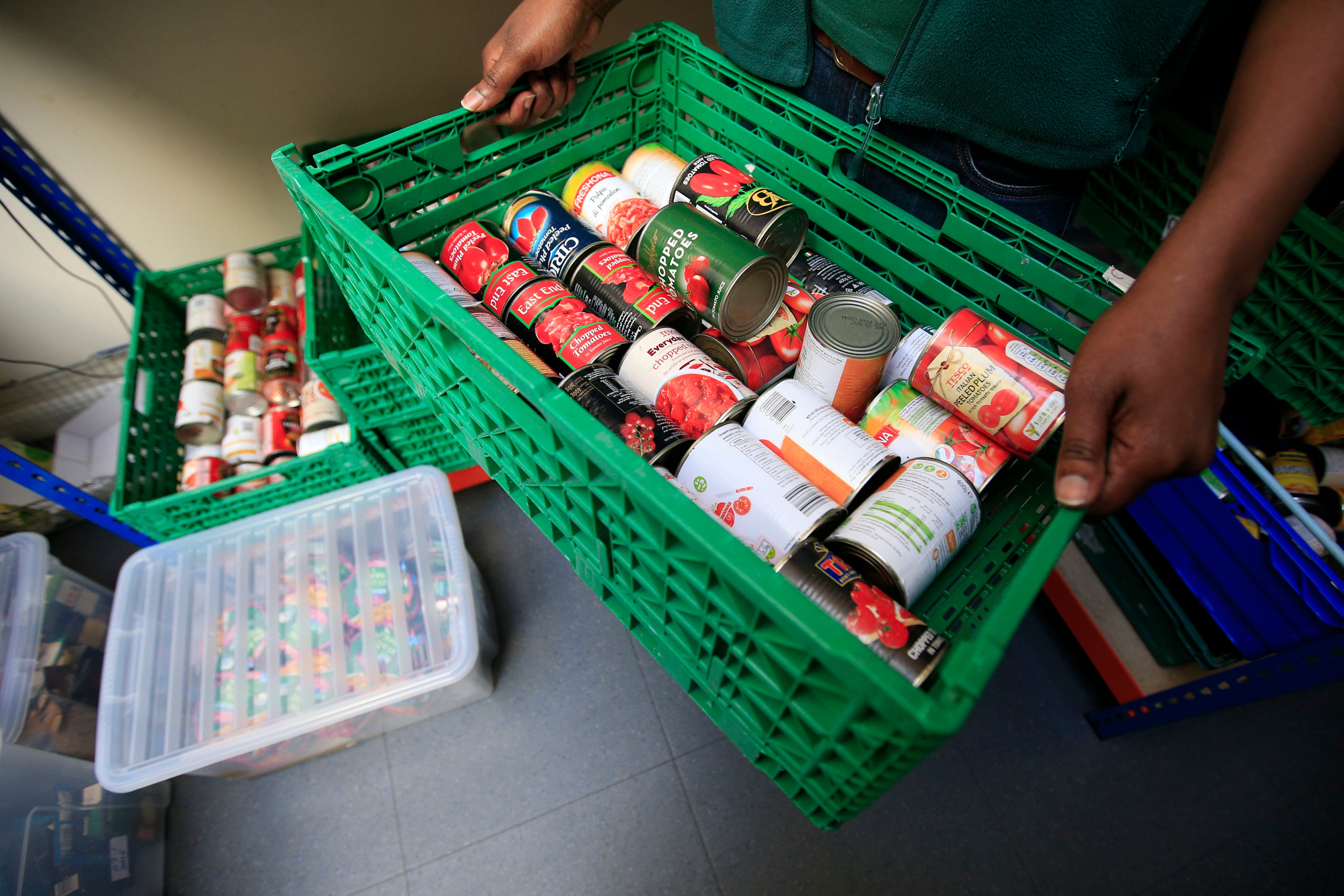Families risk falling into poverty without funding extension, councils warn
The Local Government Association said the Household Support Fund is due to end on March 31.

Your support helps us to tell the story
From reproductive rights to climate change to Big Tech, The Independent is on the ground when the story is developing. Whether it's investigating the financials of Elon Musk's pro-Trump PAC or producing our latest documentary, 'The A Word', which shines a light on the American women fighting for reproductive rights, we know how important it is to parse out the facts from the messaging.
At such a critical moment in US history, we need reporters on the ground. Your donation allows us to keep sending journalists to speak to both sides of the story.
The Independent is trusted by Americans across the entire political spectrum. And unlike many other quality news outlets, we choose not to lock Americans out of our reporting and analysis with paywalls. We believe quality journalism should be available to everyone, paid for by those who can afford it.
Your support makes all the difference.Ministers have been warned that more families risk falling into poverty if a “lifeline” hardship fund used to help struggling households buy food and heat their homes is not extended.
The Local Government Association (LGA) said the UK Government’s cost-of-living and Covid-19 support provision, the Household Support Fund, is due to end on March 31.
In the past 12 months, the organisation said it has provided £820 million in funding for millions of households in England facing financial difficulties.
The LGA said ministers had not yet confirmed whether the fund will be extended into 2024/25, leaving town halls “in limbo” over the implications for their budgets.
According to a survey undertaken by the LGA, more than eight out of 10 local authorities that responded said financial hardship had increased in their areas over the same period.
Without an urgent extension of the Household Support Fund for at least a year, there is a risk of more households falling into financial crisis, homelessness and poverty
Almost a fifth of councils said they would have to make redundancies if the Household Support Fund were to end.
Two-thirds said there was no additional discretionary funding to replace what would be lost if the fund is not renewed before April.
Councillor Pete Marland, chairman of the LGA’s economy and resources board, said: “The Household Support Fund has provided an essential lifeline for our most vulnerable residents, but our survey shows this help is needed now more than ever.
“Now is not the time to scale back support.
“Many at-risk households continue to face considerable challenges in meeting essential living costs, with demand for support greater than when the fund was first introduced.
“Ultimately, councils want to shift from providing crisis support to investing in preventative services which improve people’s financial resilience and life chances, alongside a sufficiently resourced national safety net.
“However, without an urgent extension of the Household Support Fund for at least a year, there is a risk of more households falling into financial crisis, homelessness and poverty.”
The fund was first introduced in October 2021 and allowed councils to significantly expand the help they could give to vulnerable residents during the pandemic and the cost-of-living crisis, the LGA said.
We have invested over £2 billion in the Household Support Fund over the last two years - with almost £800 million already paid to families with children to help with the cost of living
It has been subsequently extended several times, providing more than £2 billion worth of support since it was set up.
The fund has been used to provide cash grants or vouchers to help people in crisis with energy, food and other essentials.
It also supports food banks, pays for food vouchers during the holidays for children eligible for free school meals and contributes towards softening the impact of unexpected costs, such as replacing broken boilers, for low-income households.
The call for the hardship funding to be extended comes after MPs warned last week that there is an “out of control” crisis in local government driven by long-term funding constraints and a “broken” financial system.
The Levelling Up, Housing and Communities Committee said the problem could only be ended by the Government providing billions of pounds more to councils.
Officials in the Department for Work and Pensions said it would continue to keep all existing cost-of-living measures “under review”.
A spokeswoman said: “We have invested over £2 billion in the Household Support Fund over the last two years – with almost £800 million already paid to families with children to help with the cost of living.
“The current fund is available up until March 2024 as part of wider cost-of-living support worth on average £3,700 per household, including raising benefits by 6.7% from April and increasing the Local Housing Allowance.”